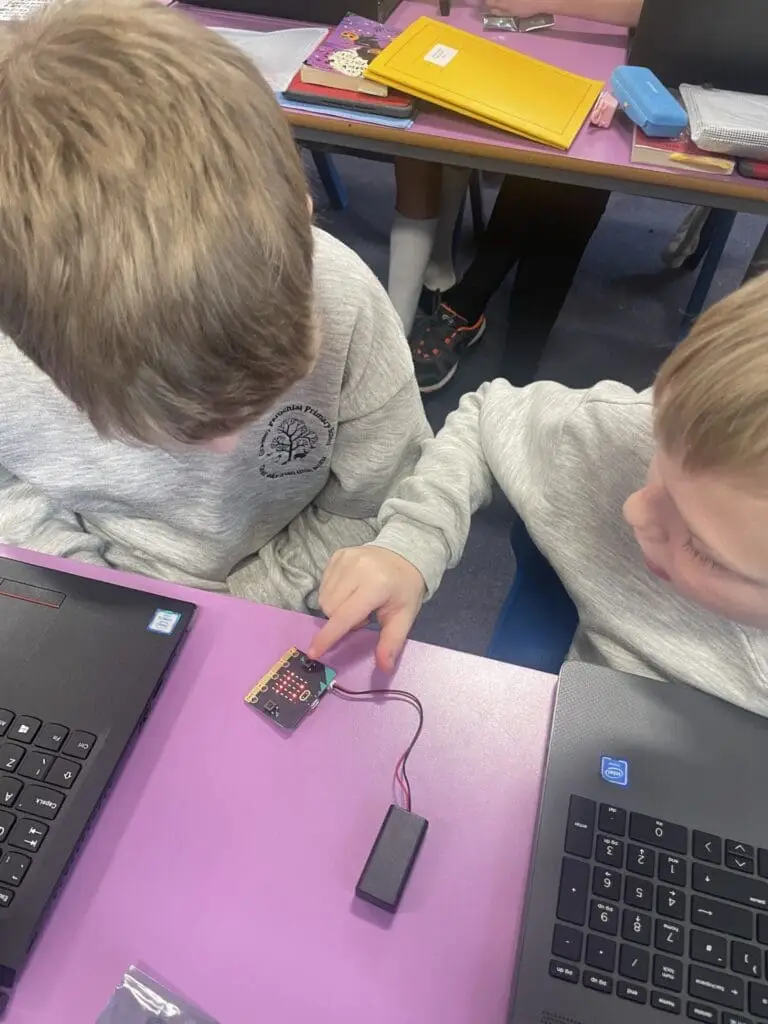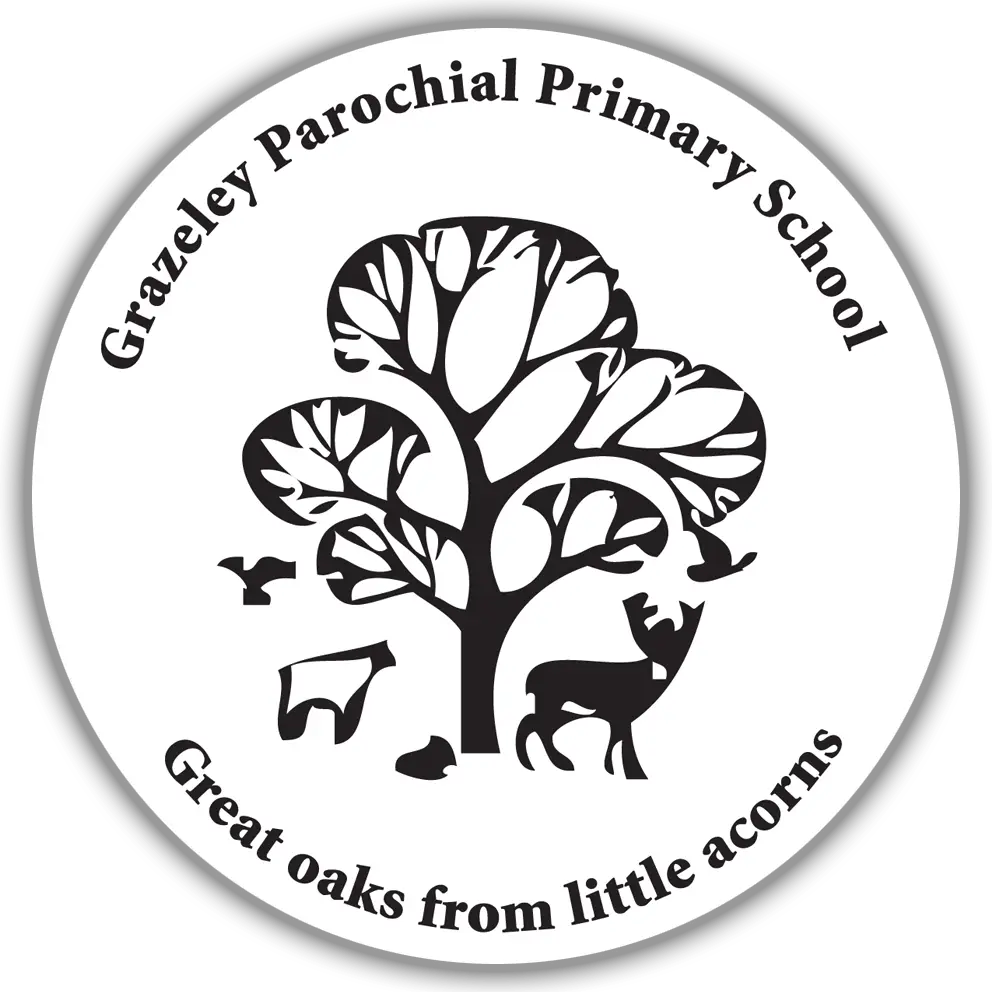- 0118 9883340
- admin@grazeley.wokingham.sch.uk
Computing
We prepare our learners for their future by giving them the opportunities to gain knowledge and develop skills that will equip them for an ever-changing digital world. Pupils become autonomous, independent and creative users of computing technologies and employ these skills to support learning across the entire curriculum.
Computing
National Curriculum Purpose of Study
A high-quality computing education equips pupils to use computational thinking and creativity to understand and change the world. Computing has deep links with mathematics, science, and design and technology, and provides insights into both natural and artificial systems. The core of computing is computer science, in which pupils are taught the principles of information and computation, how digital systems work, and how to put this knowledge to use through programming. Building on this knowledge and understanding, pupils are equipped to use information technology to create programs, systems and a range of content. Computing also ensures that pupils become digitally literate – able to use, and express themselves and develop their ideas through, information and communication technology – at a level suitable for the future workplace and as active participants in a digital world.
“Technology will never replace great teachers, but in the hands of great teachers, it’s transformational.”
George Couros
Intent
At Grazeley, we deliver the computing National Curriculum objectives through the Purple Mash Scheme of learning. Through the Purple Mash scheme of work, computing is organised into three core strands outlined in the National Curriculum: computational thinking, digital literacy and information technology. These three strands are taught through weekly computing lessons. In addition, via our Cornerstones topics computing is utilised in other areas of the curriculum where children use their digital literacy skills to create content in subjects such as maths, English, history, science and DT. We support the children to fine tune their research and data gathering skills using ICT. Through this approach we aim to give our pupils the life-skills that will enable them to use computational thinking and creativity to understand and change the world.
An integral element of computing at Grazeley is teaching children how to use the internet safely and responsibly both in the school and in the wider community. We aim to achieve this objective through a regular focus in collective worship, parent workshops and focused lessons throughout the school year. Additionally, across the school in the autumn term there will be a focus on using technology safely following the objectives set out in the National Curriculum.

reports based on The Iron Man.
Online safety progression document:
Through our computing curriculum, we want to ensure every child leaves Grazeley Primary School with the knowledge, skills and understanding to be a responsible, competent, confident and creative user of information and communication technology.
Implementation
As Computing is a statutory subject, all classes teach and learn computing at least once a week as well as discreetly within other subjects.
Computing is mapped out across the curriculum using the Purple Mash scheme of work focusing on the objectives stated in the National Curriculum.
Children in Foundation Stage will have access to a range of devices, toys and resources so that they can explore simple technologies independently and use them in their learning and play. Throughout Key Stage 1, children are taught to use technology purposefully to create, organise, store, manipulate and retrieve digital content. In Key Stage 2, children select, use and combine a variety of software on a range of digital devices to design and create a range of programs, systems and content that accomplishes given goals. Children across school are encouraged to use technology where appropriate to support their learning in all subjects.

to make spreadsheets to represent data.
Essential Knowledge:
https://static.purplemash.com/mashcontent/applications/computing_lead_tool_kit/essential_knowledge_sow/Essential%20Knowledge%20Live.pdf
Progression of Skills:
Impact
Our Computing Curriculum has been structured to demonstrate a progression of knowledge and skills and ensures that children can build on their understanding, as each new concept and skill is taught with opportunities for children to revisit skills and knowledge as they progress through school.
Children become digitally literate and are ready to confidently use technology at home and at school. We believe it is a skill that empowers, and one that all pupils should be aware of and develop competence in. Pupils who can think computationally are better able to create, understand and use computer-based technology, and so are better prepared for today’s world and future.
Whole School Overview


Year 6 using Microbits to make light sensors that produced sound, a message and light when light was detected
Feedback and Assessment
We believe that when assessing computing it is important to look for evidence of knowledge of understanding as well as technical skills. Asking pupils to talk about what they have learned as well as showing the work they have completed, provide important evidence of learning. We assess through observation of work on tasks, scores from teacher set 2Dos, contribution to class discussion and peer discussions.
